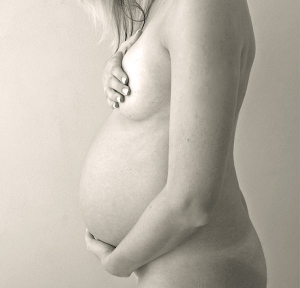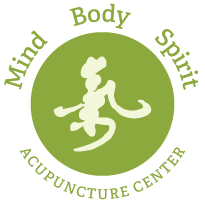Traditional Chinese Medicine, including Acupuncture and Herbal Medicine is a great modality to help infertility couples conceive naturally or to help the success of ART (assisted reproductive therapy) such as IUI or IVF.
Traditional herbal medicine and acupuncture therapy can be very effective in balancing many imbalances which are the cause of complex gynecological disorders that lead to infertility or reduced fertility. Many of these gynecological disorders may be able to be treated by the assistance of herbal medicines and acupuncture, including
- Irregular Menstrual Cycles
- PMS
- Fibroids
- PCOS
- Endometriosis
- Postpartum Disorders
- Unsuccessful IUI/IVF Attempts
- Emotional Imbalances Related To Hormones
- Pelvic Pain
- Menopause
The American Pregnancy Association suggests that acupuncture can be an effective way to address many of the problems causing infertility. Specifically it can alleviate an under-functioning thyroid (hypothyroidism) or an over-functioning thyroid (hyperthyroidism). A malfunctioning thyroid can affect ovulation which in turn can impede a woman’s ability to become pregnant. Tubal issues can also be treated with acupuncture. Other conditions, such as tubal adhesions which can occur as a result of pelvic inflammatory disease, may also be addressed. While they may not respond to acupuncture alone, some might respond to a combination of acupuncture and herbal medicine, coupled with more conventional medical procedures.Here is a list of other Fertility issues that can be addressed by acupuncture in combination with other treatments include:
- Elevated follicle stimulating hormone
- Repeated pregnancy loss
- Unexplained or idiopathic infertility
- Luteal phase defect
- Hyperprolactinemia, when not caused by a prolactinoma
- Polycystic ovarian syndrome with annovulatory cycles
- Male factors, which include men affected with sperm-DNA-fragmentation
Proper lifestyle and nutrition are very important in achieving balance and wellness. Once this has been achieved, conception is far more likely. Acupuncture requires a time commitment to allow the body’s systems to re-balance your body’s systems. Should there be menstrual problems, the treatment must progress until a minimum of three normal cycles are achieved. After that, you must allow yourself a minimum of six months, preferably 18 months, to get pregnant. Please call me for information on traditional medicine and acupuncture treatment for infertility or other problemsTypically a woman who uses acupuncture to enhance her chances of becoming pregnant will start a series of treatments three or four months before attempting to conceive. Many women attempt to conceive naturally. Assisted Reproductive Therapies (ART) such as In Vitro Fertilization (IVF), artificial insemination, donor egg transfer can also be used when necessary. After pregnancy occurs, acupuncture usually continues through the 12th week in order to address pregnancy discomforts such as morning sickness, nausea, headaches, fatigue, and anxiety about miscarriages.
 Acupuncture treatment for infertility is a great modality to help couples conceive naturally or to help the success of ART (assisted reproductive therapy) such as IUI or IVF. Couples are treated with appropriate acupuncture protocols to fit the constitution of each person. Hair analysis and saliva testing are used to look at hormone levels during a woman’s cycle. Regulating a woman’s cycle, reducing stress, applying exercise, and incorporating a whole foods diet can create an environment for optimal hormone functioning.
Acupuncture treatment for infertility is a great modality to help couples conceive naturally or to help the success of ART (assisted reproductive therapy) such as IUI or IVF. Couples are treated with appropriate acupuncture protocols to fit the constitution of each person. Hair analysis and saliva testing are used to look at hormone levels during a woman’s cycle. Regulating a woman’s cycle, reducing stress, applying exercise, and incorporating a whole foods diet can create an environment for optimal hormone functioning.
Acupuncture, frequently combined with herbal medicine, has been used for centuries to treat some causes of infertility. For example, acupuncture and herbs will not work to address tubal adhesions which can occur as a result of pelvic inflammatory disease or endometriosis. However, in this situation, an individual could still benefit from acupuncture and herbs because of the potential effect of improved ovarian and follicular function. Additionally, it is shown that acupuncture can increase blood flow to the endometrium, helping to facilitate a thick, rich lining.
Why Consider Acupuncture for infertility?
Acupuncture is often helpful where conventional medicine is not. James K. Rotchford, M.D., a founding member of the American Academy of Medical Acupuncture, finds it helps as many as 80 percent of people.
Good candidates for trying medical acupuncture are people who have a functional, rather than a structural reason for infertility (for example, damaged fallopian tubes are structural). Men or women with functional infertility would be encouraged to try acupuncture in addition to their standard medical treatment. Generally speaking, around 10 visits with a licensed acupuncture provider will let you determine if it can be of help to you.
Along this same line, Dr. Hu recommends Chinese herbs in conjunction with acupuncture. In traditional Chinese medicine, the practitioner always combines herbs in order to produce a certain effect. There are many combinations of Chinese herbs that have been lauded as improving fertility in both males and females. She does caution, however, that it’s best to tailor the herbal recipe to the individual, rather than to the condition.
Can acupuncture be used to treat infertility?
Acupuncture, frequently combined with herbal medicine, has been used for centuries to treat some causes of infertility. For example, acupuncture and herbs will not work to address tubal adhesions which can occur as a result of pelvic inflammatory disease or endometriosis. However, in this situation, an individual could still benefit from acupuncture and herbs because of the potential effect of improved ovarian and follicular function. Additionally, it is shown that acupuncture can increase blood flow to the endometrium, helping to facilitate a thick, rich lining.
When should acupuncture treatment begin?
Acupuncture is similar to physical therapy in that it is a process oriented method of medical intervention. It is better to do more than less. Patients are commonly treated for three to four months before an insemination, in vitro fertilization (IVF), or donor-egg transfer. In a study by Stener-Victorin from the Departments of Obstetrics and Gynecology Fertility Centre, Scandinavia and University of Gothenburg, women are encouraged to receive acupuncture treatments pre and post embryo transfer. Clinical observations from the Berkley Center for Reproductive Wellness suggest that the most effective fertility treatments involve a combination of acupuncture, herbal medicine, and traditional medical interventions. However, conception does sometimes occur when acupuncture and herbal medicines are used without traditional medical interventions.
When should I stop getting acupuncture?
Acupuncture is a viable treatment modality both for achieving pregnancy as well as during pregnancy and with post- partum care.
What are the risks of using acupuncture?
There are minimal risks when using acupuncture for fertility treatment. Acupuncture is not contraindicated for anyone regardless of their pathology or what medications they are taking.
What types of fertility patients typically get acupuncture?
Acupuncture can be used to treat any type of fertility disorder including spasmed tubes. (Spasmed tubes are often de-spasmed with acupuncture, though blocked tubes will not respond to acupuncture). Acupuncture is often combined with herbs to treat elevated follicle stimulating hormone (FSH), repeated pregnancy loss, unexplained (idiopathic) infertility, luteal phase defect, hyperprolactinemia (when not caused by a prolactinoma), polycystic ovarian syndrome (PCOS) with annovulatory cycles, and male factor including men affected with sperm-DNA-fragmentation.

